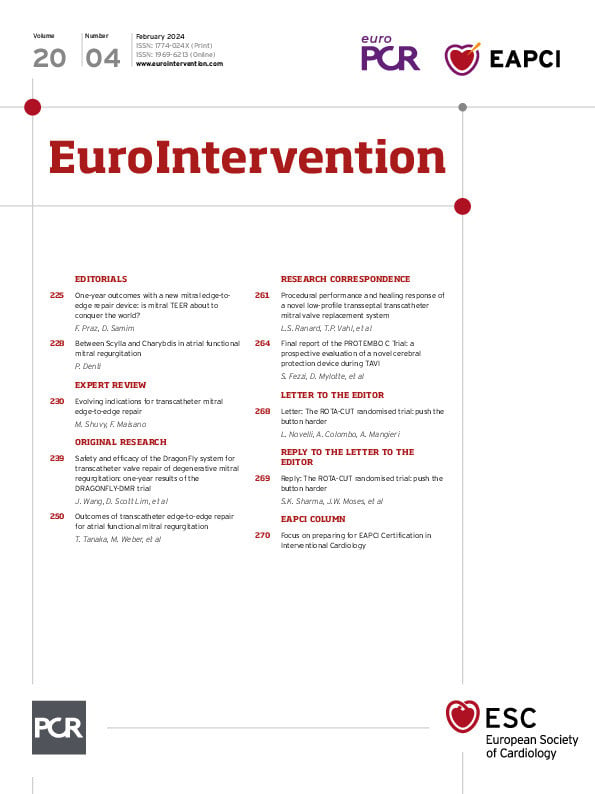The 2023 edition of the EAPCI Certification examination has recently taken place. The EAPCI Certification pathway seeks to set a standard for competency and excellence in the field of interventional cardiology across Europe and beyond. It has been meticulously developed to accurately reflect and clearly define assessment goals and to evaluate the necessary knowl- edge, skills and clinical competencies that are required for interventional cardiology practice. Here we outline the key steps to prepare for the examination.
Who should consider sitting the EAPCI Certification examination?
The exam benefits three groups of interventional cardiology (IC) operators:
1. In countries without established IC certification programmes, the exam will provide an international certificate proving IC operator status.
2. In countries with ongoing IC certification programmes, the exam allows an extension of the IC operator certification to other ESC member countries who agree to recognise it.
3. IC operators considering moving to an ESC member coun- try may consider gaining their IC operator certification to confirm their experience in this field.
How is the EAPCI Certification examination designed?
The programme consists of two parts:
1. Written exam – intended to test the theoretical knowledge of the candidate
2. Logbook – to demonstrate the training, skills and experience of the candidate
Written examination
The examination is open to all practising interventional cardi- ologists who meet the eligibility criteria: an EAPCI Associate, a doctor with a national board certification in cardiology, or a doctor in cardiology specialist training, as confirmed by their training director.
The examination consists of 100 multiple choice questions based on clinical scenarios with five options and a single best answer. The best sources to prepare for the examina- tion are the following:
1. The PCR-EAPCI Textbook of Percutaneous Interventional Cardiovascular Medicine
2. Latest ESC Clinical Practice Guidelines
3. EAPCI Consensus and Position Papers on Interventional Cardiology
4. EAPCI Core Curriculum
5. EAPCI webinars
6. EAPCI Fellows Course
Logbook
The EAPCI logbook is accessible to all candidates who have successfully passed the written exam. Candidates are required to provide evidence of their clinical experience in their train- ing centre along with the names of two different individuals who are responsible for the training of the candidate: one identified as the Mentor and the other being Department director/Supervisor. Both the Mentor and Supervisor must be EAPCI members and must sign off the logbook confirming the accuracy of the content and verifying that all procedures were done by the candidate. A certificate of attendance of a minimum of one EAPCI Congress (EuroPCR and/or PCR London Valves) during the 24 months of interventional cardi- ology training is required for certification.
Cases included in the logbook may be collected anytime from 24 months before to 24 months after successful completion of the EAPCI written examination. Each patient can only be included once in the logbook; multiple studies of the same patient are not permissible. Thus, potential candidates are encouraged to commence their collection of cases as soon as possible. Candidates are not asked to submit the full reports as part of their logbook, although these may be requested by the EAPCI graders and EAPCI Certification Committee, and candidates are thus asked to keep this information available.
Next examination
The 2024 written examination will take place on Friday, 13 December, with registration opening three months in advance.

